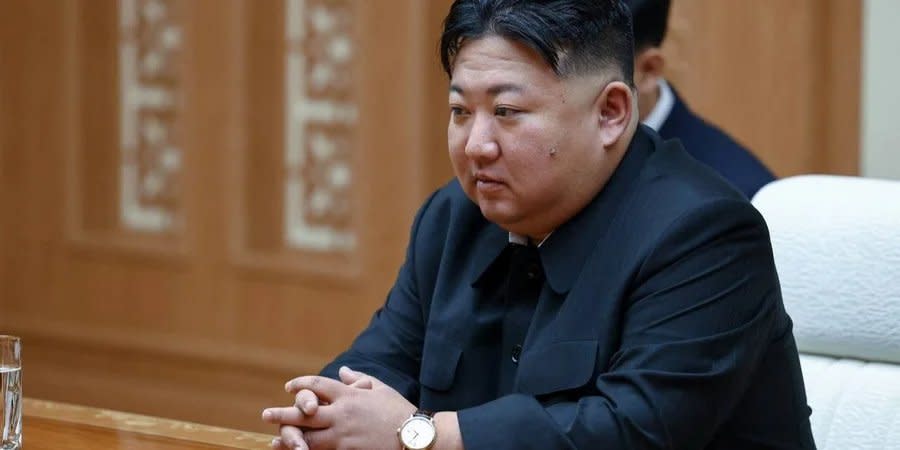DPRK escalates inter-Korean conflict by officially cutting all economic cooperation with South Korea

- Oops!Something went wrong.Please try again later.
The Standing Committee of the Supreme People's Assembly of the DPRK, the country's highest legislative and representative body, has decided to repeal all laws on economic cooperation with South Korea, local outlet Yonhap reported on Feb. 8.
According to the decision, laws on inter-Korean economic cooperation, on a special zone for international tours to Mount Kumgang in the DPRK, and other agreements on economic cooperation between the two Koreas, have been repealed by Pyongyang.
Read also: Russia signing arms deal with North Korea would violate UN resolutions — Washington
The Law on Inter-Korean Economic Cooperation, adopted in 2005, is considered the basis for economic ties between the two countries, and the Law on the Special Zone on Mount Kumgang, adopted in 2011, contains details on investments in the region by southern and foreign entities.
North Korea has reportedly decided to eliminate its own agencies that dealt with inter-Korean affairs, such as the National Committee for the Peaceful Reunification of the Fatherland, the economic cooperation agency, and the travel agency that organized tours to the picturesque Mount Kumgang in the DPRK, which attracted almost 2 million South Korean tourists annually.
Read also: US says Russia has used at least nine North Korean ballistic missiles against Ukraine
"The DPRK effectively abandoned the idea of unifying Korea into a single country, which had been cherished by the ruling Kim regime for more than 70 years, late last year when current leader Kim Jong Un declared that inter-Korean ties were between two states hostile to each other and promised to suppress the entire territory of South Korea in the event of a contingency," the article reads.
Kim also ordered a change to the Constitution of North Korea to remove the provision on unification with the South.
After that, Pyongyang launched an offensive against everything related to inter-Korean relations, including the liquidation of all agencies in the DPRK, the demolition of the symbolic "Reunification Arch" built by the current dictator's father, and unilateral withdrawal from agreements with Seoul.
South Korea's Unification Ministry, which is responsible for inter-Korean affairs, said the repeal of the laws was expected and warned that the move would lead to further isolation of the DPRK.
A ministry spokesman said that the government does not currently have a response plan, emphasizing that agreements on inter-Korean economic cooperation do not become invalid after Pyongyang's unilateral decision.
The UN Security Council has been trying to stop the DPRK's nuclear program through sanctions since 2006. They are designed to limit Pyongyang's ability to trade in products such as coal, textiles, and oil.
There are also restrictions on North Korean citizens working abroad.
The head of the Main Intelligence Directorate of the Ministry of Defense of Ukraine (HUR), Kyrylo Budanov, said in January 2024 that North Korea was the largest supplier of weapons to Russia.
Read also: North Korean dictator meets with Russian Defense Minister in Pyongyang
Russia unblocked some of North Korea's frozen assets in exchange for arms supplies, media reported on Feb. 6.
The DPRK was seen circumventing sanctions by falsifying markings, according to recent press reports.
We’re bringing the voice of Ukraine to the world. Support us with a one-time donation, or become a Patron!
Read the original article on The New Voice of Ukraine

